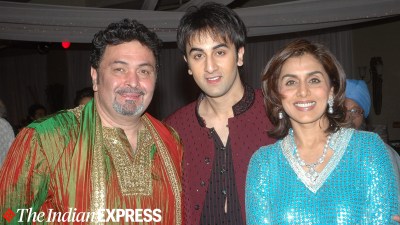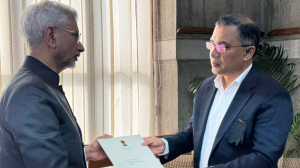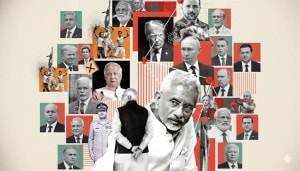The King has fallen
Back in 1989, P T Ummer Koya was one of three joint secretaries of the All-India Chess Federation, holding a regular job as senior pump oper...

Back in 1989, P T Ummer Koya was one of three joint secretaries of the All-India Chess Federation, holding a regular job as senior pump operator in Kozhikode University.
Today, he lives in what is described as a 8216;8216;palace8217;8217; in Kozhikode the joke being that only the Taj has more marble in it and, until recently, had a lifestyle involving 350 days of air travel a year. He also earned, through various positions in the AICF, around Rs 19 lakh every year.
The story of the last 15 years is a fascinating account of how one man took a sport to great heights, exploiting the benefits of liberalisation, pushing the envelope way beyond the 64 squares. Till the law 8212; in the form of the Madras High Court 8212; brought him back to earth.
Ironically, Koya8217;s rise was assisted by Manuel Aaron, one of the litigants in the High Court case against him. Aaron was AICF secretary but opted out of the 1989 elections as he had a lucrative coaching offer in the UAE. His plan was to give Koya 8212; who was famous for carrying his bag everywhere 8212; one term, return from Dubai and resume the reins.
Some hope. Koya 8212; who calls himself a self-taught orphan 8212; understood his future depended on Aaron8217;s ouster so he formed his own clique and moved away from the Tamil Nadu gang then ruling Indian chess. Aaron returned to find himself 8212; and his unpopular TN gang 8212; sidelined completely.
In December 1990, AICF president Dhruv Sahwney managed to get India8217;s only truly super GM event to India Triveni GM tournament. It made Koya realise that bigger events meant bigger money. He had already opted to host Anand8217;s first world championship match against Alexey Dreev in Chennai in January 1991 and held the World juniors in 1993 in Kozhikode.
He also realised soon enough that big corporate sponsors were more particular, less flexible about accounts so he turned to state governments. It was a brilliant, though simple plan: His local tournaments in Kozhikode would be attended by the Excise commissioners, Income Tax Commissioners, Magistrates as chief guests. The symbiosis could only be good for him 8212; and, by extension, for Indian chess, which was in its first stages of awakening.
This, despite the fact that IT giants like WIPRO and NIIT kept away from tournaments after showing initial interest, preferring instead to focus on individual players.
All this while Koya8217;s clout and control was growing, helped by the unremarkable fact that state associations were weak. He relied on the time-trusted measure of doles and sops 8212; a junket here, a tournament there 8212; to keep people in line.
Soon his fame spread outside India, his clout grew in direct proportion to India8217;s emergence as a global chess power, his strength measured against every IM or GM turned out. On the one hand he named one son after Nigel Short, on the other he tweaked an existing ratings system and named it after himself.
Becoming vice-president of Fide 8212; he8217;s now in his third term 8212; and head of the Commonwealth Chess Association was a short distance away.
However, even as sharp a practitioner as Koya would overstep the limit. That happened last June, when he imposed a 10 per cent cut on all the money won by prize-winners in domestic competitions. The reason cited was the AICF8217;s paucity of funds but it looked a bit strange given the long list of fees charges by the federation for every tournament, and by the slew of frivolous expenses it incurred.
Today he stands suspended from all his important posts, domestic and international. But only the naive would count him out for the long run. Check, maybe; not yet mate.
THE LEGAL GRID
THE CASE
Petitions filed by TN, Delhi, Maharashtra associations sought restraint against koya from acting in AICF, C8217;Wealth and FIDE capacities
THE CHARGES
Many illegal acts of omission and commission including:
8226; 10 per cent cut in prize money for players on grounds of financial crisis, though AICF OKd at the same time a Hall of Fame with Rs 25,000 monthly rent
8226; Siphoning off funds by wearing many hats at the same time secretary, magazine editor, webmaster
8226; Claiming TA/DA bills of Rs 8 lakh, saying he travels 350 days a year, but also claiming Rs 96,000 in local travel expenses
THE VERDICT
Interim order restraining Koya from carrying out AICF, FIDE and C8217;wealth duties
- 01
- 02
- 03
- 04
- 05































